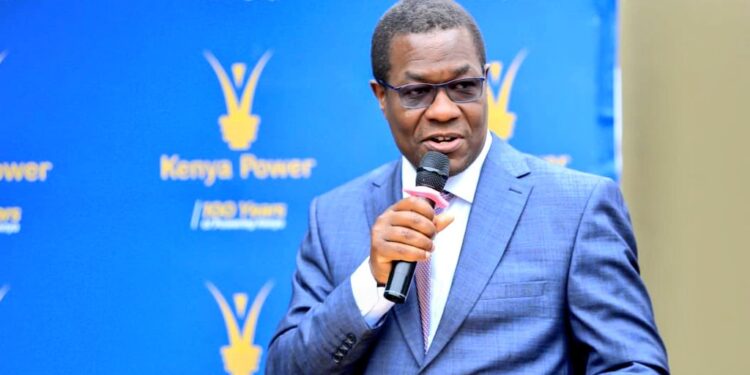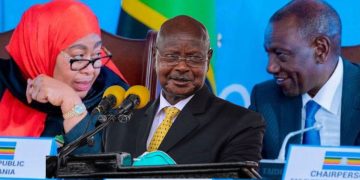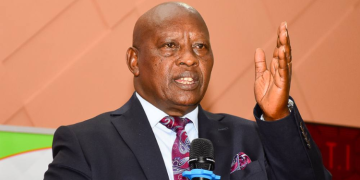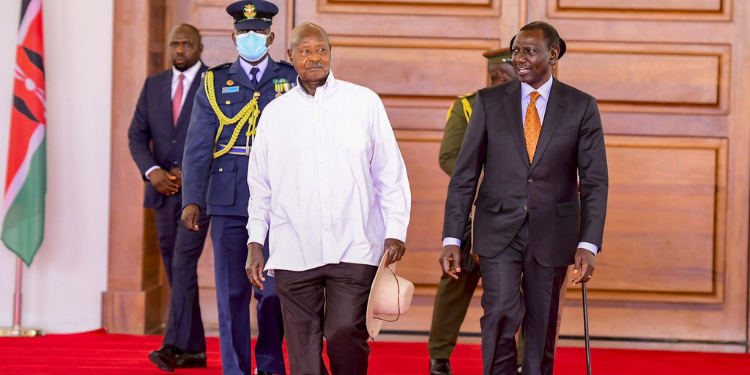Energy Cabinet Secretary (CS) Opiyo Wandayi on July 22 explained that President Yoweri Museveni of Uganda made changes to the oil importation policy, which disrupted the Government-to-Government (G-to-G) fuel importation deal between Kenya and the United Arab Emirates (UAE) and Saudi Arabia.
Appearing before the National Assembly’s Departmental Committee on Energy, Wandayi said the G-to-G fuel importation deal has played a significant role in reducing fuel prices at the pump.
He stated that the G-to-G arrangement was introduced at a time when Kenya was experiencing severe pressure on its foreign exchange reserves.
This was primarily because petroleum imports were previously paid for in U.S. dollars, leading to a strain on dollar availability.
CS Wandayi outlined the key objectives of the G-to-G deal, which included easing U.S. dollar liquidity challenges, reviving the interbank forex market, and stabilising the foreign exchange rate.
However, he noted that changes in Uganda’s fuel import policy had disrupted the implementation of the agreement.
Wandayi revealed that Uganda’s decision to begin importing refined petroleum products through the Uganda National Oil Company had disrupted the regular monthly shipments under the oil deal.
He said this move reduced the number of cargoes and affected the agreed timelines for delivery.
Cabinet Extends G-to-G Deal
Further, Wandayi said both the National Treasury and the Central Bank of Kenya had advised that full economic recovery had not yet been achieved.
As a result, there was a need to continue cushioning the economy.
“In light of this, the Cabinet approved the extension of the Government-to-Government arrangement for an additional 24 months upon expiry of the current contract,” Wandayi said.
He added that the arrangement is now expected to run until the first quarter of 2028, by which time it is hoped the economy will have fully stabilized.
Also Read: Muhoozi Promises to Get Museveni 90% of Votes in Next Uganda Elections
Uganda Changes on Oil Importation Policy
Uganda was forced to make changes in its oil importation police in November 2023 to cushion citizens against high fuel prices.
Uganda’s Minister for Energy and Mineral Development Ruth Ssentamu said the country was acquiring oil at higher cost after Kenya adopted the G-to-G deal.
She explained that the deal had left Uganda as a secondary option whenever there were disruptions in the supply and at a risk of missing fuel supply.
Also Read: Govt Clarifies Ending G-to-G Oil Deal Amid Failure Reports
Uganda amended the Petroleum Supply Act, 2003 through the Petroleum Supply (Amendment) Bill, 2023 to protect the country from vulnerabilities and market disruption.
The amendment mandated the Uganda National Oil Company to import petroleum products for the Ugandan market.
Additionally, it allowed the minister to nominate any other person to import petroleum products with cabinet approval.
Follow our WhatsApp Channel and X Account for real-time news updates











































































